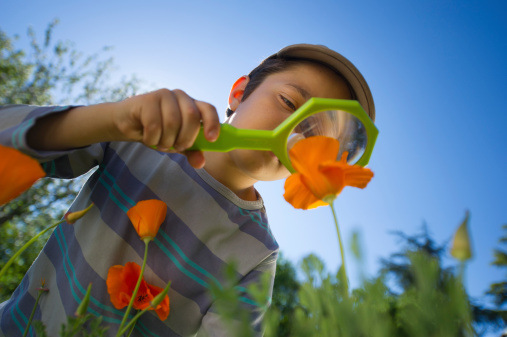This workshop will look at some examples of phenomena (large and small), look at the science ideas behind the events of the phenomenon, and identify related grade –appropriate ideas that can be used to engage students in making sense and explaining new science concepts.
About This Course
The Next Generation Science Standards are based on the idea that students should apply the practices that scientists and engineers use to explain or make sense of events (phenomena) that they encounter in their everyday lives. The idea of a phenomenon that can be used to engage students in learning about a specific idea in science is such an important idea, that in rubrics, such as the one developed by EQUiP for evaluation of NGSS materials, the use of grade level appropriate phenomena is identified as a critically important characteristic.
A phenomena can be defined as anything that can be observed. Many times when we look for phenomena to engage our students in thinking about a new idea or topic, we look for those that are large and impressive, and sometimes overlook others that are smaller and perhaps less baffling, but which are based on the same underlying science idea.
This workshop will look at some examples of phenomena (large and small), look at the science ideas behind the events of the phenomenon, and identify related grade –appropriate ideas that can be used to engage students in making sense and explaining new science concepts.
VIEW DETAILED COURSE OUTLINE+ Expand
Goals & Purpose
Session 1 – Title
- Item 1
- Item 2
- Item 3
- Item 4
Session 2 – Title
- Item 1
- Item 2
- Item 3
- Item 4
Session 3 – Title
- Item 1
- Item 2
- Item 3
- Item 4
 Download Detailed Course Outline
Download Detailed Course Outline
FAQ+ Expand
1. Q: Question 1
A: Answer 1
2. Q: Question 2
A: Answer2
WAYS TO TAKE THIS COURSE
Simply Audit this Course
Can't commit to all of the lectures, assignments, and tests? Audit this course and have complete access to all of the course material, tests, people, portfolios, and the online discussion forum. You decide what and how much you want to do.
Try for a Certificate
Looking to test your mettle? Participate in all of the course's activities (we use the honor code around here) and if your work meets the 85% requirements, you'll receive a personalized certificate to showcase your achievement. You can also apply for course credit (if desired).
Course Staff

Dr. Richard Vineyard
Richard N. Vineyard Ph.D., is Lead Program Manager for Science at PCG Education. His extensive experience in science education and assessment informs his work with the K-12 community, specifically in helping schools understand the Next Generation Science Standards (NGSS). Dr. Vineyard works with state, district, and school administrators to design and develop new instructional programs based on the NGSS. He also supports projects focused on the professional development of teachers in science and other Science, Technology, Engineering and Math (STEM) education initiatives. Prior to joining PCG in 2015, Dr. Vineyard was Assessment Director for the Nevada Department of Education (NDE) where he worked to supervise the development and implementation of all state level assessments in Nevada. His career with the NDE spanned more than 17 years, during which time he worked first as the state Science Specialist on statewide education initiatives including the development of science content standards and Nevada’s first assessments in science. Richard has served on numerous state and national committees on science education and assessment, and is past President of the Council of State Science Supervisors.
Lori Larsen
Lori Larsen has experience teaching in both the public and private environment and has worked at the District level in administration, as well as a education consultant traveling to schools throughout the United States and Canada. She has made presentations at local, state, and national conferences highlighting the use of technology as an instructional tool in the classroom and focuses on integrating technology and curriculum to engage students. Her experience as a classroom teacher and as a professional development specialist working with teachers gives her opportunity to work with teachers and students to effectively enhance classroom instruction and student learning.
Enter Name of Authors (Author 1 First Name Last Name, Author 2 First Name Last Name)






